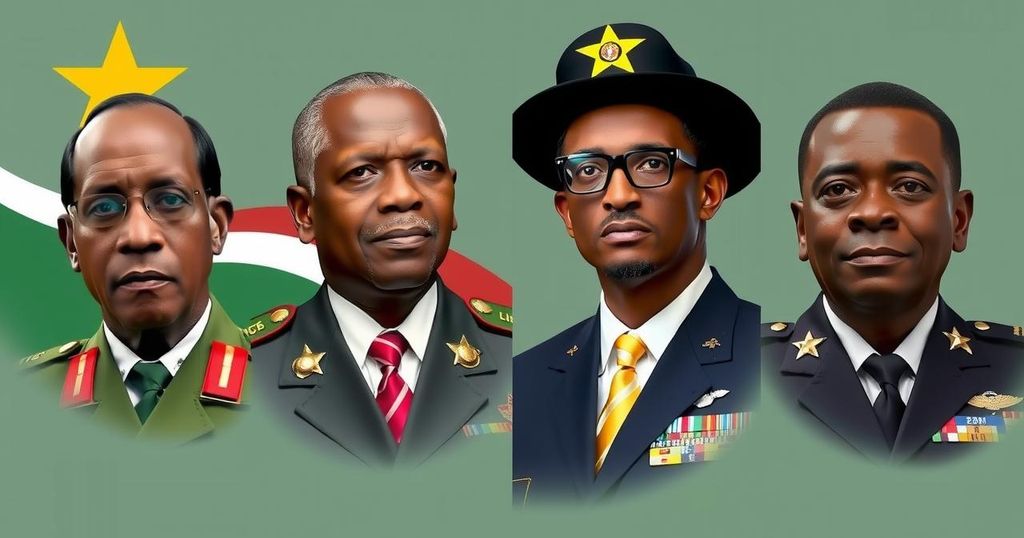On December 9, 2024, South Sudan President Salva Kiir dismissed key leaders, including the army chief and central bank governor. General Paul Nang Majok replaces Gen. Santino Deng Wol, while Johnny Ohisa Damian returns as the governor of the Bank of South Sudan. Further appointments include General Abraham Peter Manyuat as Inspector General of the Police Service. The changes follow a violent incident linked to former intelligence director Gen. Akol Koor Kuc, though reasons for the reshuffling remain unclear.
On December 9, 2024, South Sudan President Salva Kiir officially dismissed General Santino Deng Wol as the Chief of Staff of the army, appointing General Paul Nang Majok to succeed him. Additionally, the President announced the appointment of General Wok as the Undersecretary for the Ministry of Defense and Veterans Affairs, thereby replacing Atak Santino Majak. In a separate decree, James Alic Garang Alic was removed from his position as governor of the Bank of South Sudan (BoSS), with Johnny Ohisa Damian reinstated as his replacement; he had previously held the role before this recent reappointment.
Further significant appointments included General Abraham Peter Manyuat as the new Inspector General of the South Sudan Police Service, taking over from General Atem Marol Biar. Furthermore, Garang Majak was relieved from his duties as the first Undersecretary of the Finance Ministry, succeeded by Arop Nuoi Arop. Notably, the decrees did not provide any justifications for these leadership changes within the military and banking sectors.
Last month, following a violent shootout at the residence of former intelligence director Gen. Akol Koor Kuc that left four deceased and several injured, President Kiir mandated investigations into the incident. However, the relationship, if any, between this traumatic event and the recent military reshuffles remains uncertain.
The appointment changes in South Sudan stem from a series of significant events regarding the country’s leadership in military and economic sectors. The dismissal of key military and financial leaders signifies a potential response to ongoing instability and security concerns within the nation. In South Sudan, which has faced numerous internal conflicts since its independence in 2011, leadership changes in these critical sectors often aim to address emerging threats and restore public confidence in state institutions. Additionally, with President Kiir’s government facing scrutiny, these adjustments may also be seen as efforts to enact reforms and improve governance.
In summary, President Salva Kiir’s recent decisions to replace the army chief, the governor of the central bank, and other prominent officials highlight a continuing effort to address operational effectiveness in South Sudan’s military and financial institutions. The lack of explanation for these changes, particularly following a violent incident, raises questions about the strategic direction of the government. As South Sudan navigates its fragile political landscape, these appointments may play a crucial role in stabilizing the country in the long term.
Original Source: sudantribune.com







